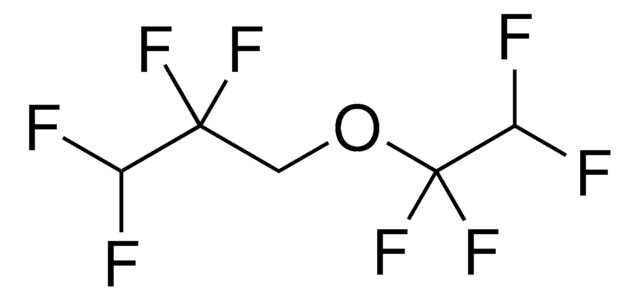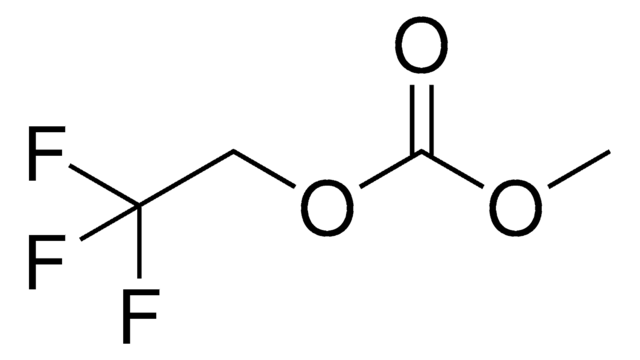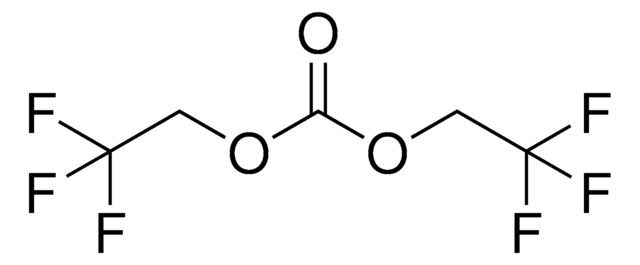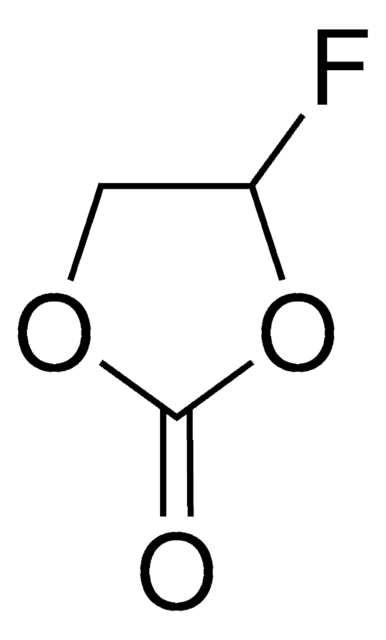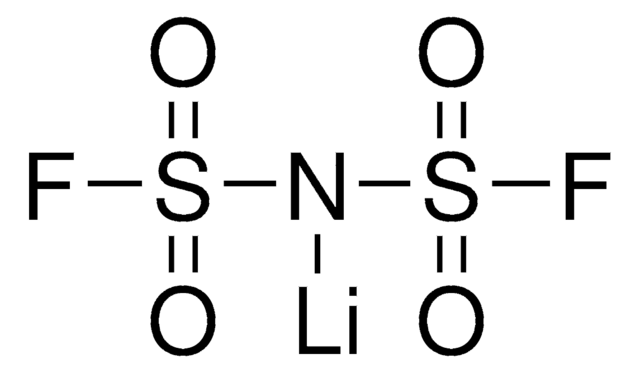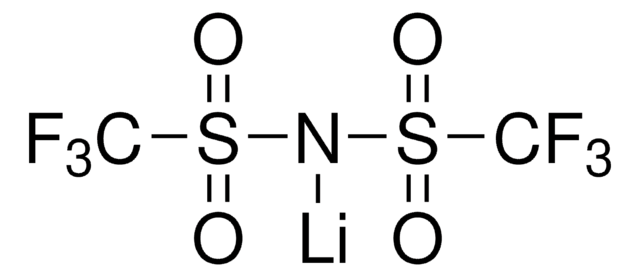933988
1,1,2,2-Tetrafluoroethyl 2,2,2-trifluoroethyl ether
≥99.5%, anhydrous, acid <=100 ppm, battery grade
Sinônimo(s):
1,1,2,2-tetrafluoro-1-(2,2,2-trifluoroethoxy)ethane, HFE-347, TFTFE
About This Item
Produtos recomendados
grau
battery grade
Nível de qualidade
Ensaio
≥99.5%
forma
liquid
características do produto alternativo mais ecológico
Design for Energy Efficiency
Learn more about the Principles of Green Chemistry.
sustainability
Greener Alternative Product
Impurezas
≤100 ppm acid (HF)
≤250 ppm H2O
non-volatile residue (NVR)
≤10 ppm
pb
56 °C
pf
-91 °C (lit.)
densidade
1.49 g/mL
aplicação(ões)
battery manufacturing
categoria alternativa mais ecológica
Categorias relacionadas
Descrição geral
Aplicação
Palavra indicadora
Warning
Frases de perigo
Declarações de precaução
Classificações de perigo
Eye Irrit. 2 - Skin Irrit. 2
Código de classe de armazenamento
10 - Combustible liquids
Classe de risco de água (WGK)
WGK 3
Ponto de fulgor (°F)
Not applicable
Ponto de fulgor (°C)
Not applicable
Certificados de análise (COA)
Busque Certificados de análise (COA) digitando o Número do Lote do produto. Os números de lote e remessa podem ser encontrados no rótulo de um produto após a palavra “Lot” ou “Batch”.
Já possui este produto?
Encontre a documentação dos produtos que você adquiriu recentemente na biblioteca de documentos.
Nossa equipe de cientistas tem experiência em todas as áreas de pesquisa, incluindo Life Sciences, ciência de materiais, síntese química, cromatografia, química analítica e muitas outras.
Entre em contato com a assistência técnica